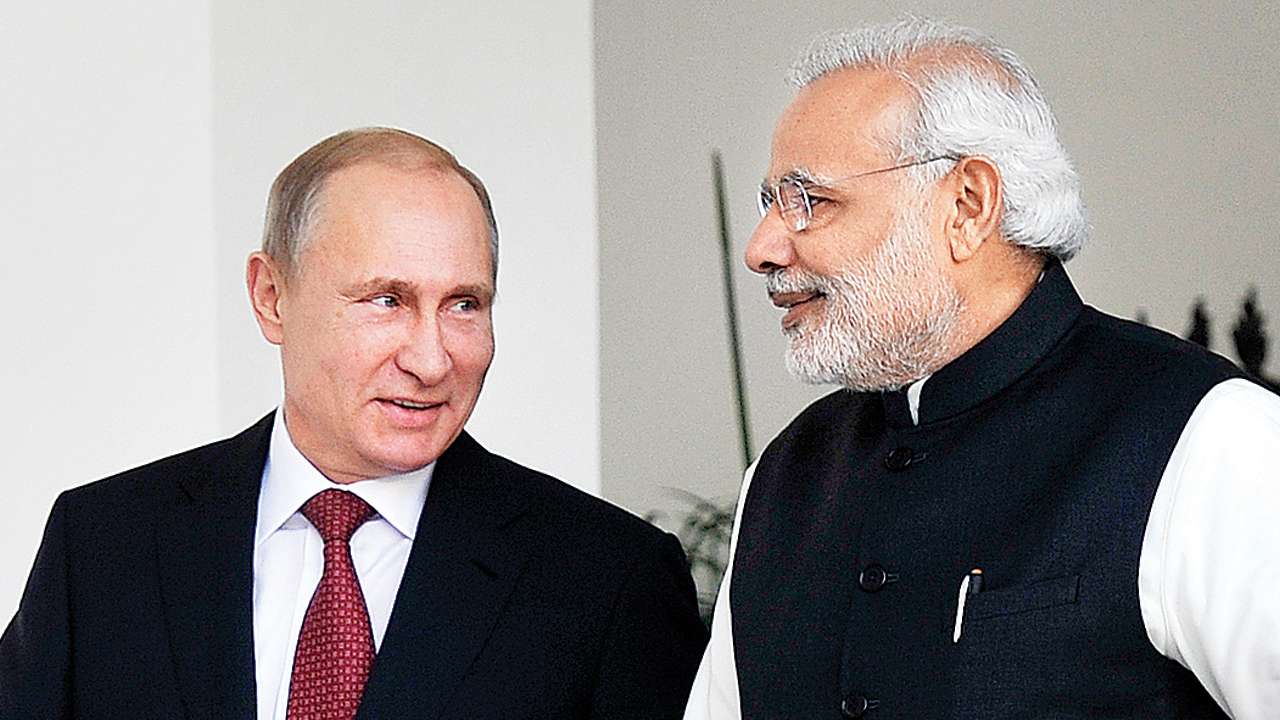
Prime Minister Narendra Modi must gear up for foreign policy challenges now, post his meeting with Russian President Vladimir Putin, keeping aside domestic politics.
The meeting is a diplomatic tightrope for the PM as not only does he have to soothe frayed Russian nerves, since the Kremlin now perceives India to have drifted towards the US, but also gear up to face outrage by the Americans who have viewed the PM’s visit with some concern.
The outrage comes as the PM is expected to finalise defence deals to the tune of around $12 billion. What will also upset the Americans is that the leaders of Asia’s two-largest countries are also expected to have discussed the ramifications of the US pullout of the Iranian nuclear deal and the possibility of further civil nuclear co-operation — Russia is already in charge of the Kudankulam nuclear project — India’s largest civil nuclear project.
If India and Russia do join hands on the Iranian nuclear deal issue, America faces the risk of global isolation as some European nations have hinted that they may not follow Washington’s lead. The issue of military supplies and civilian nuclear co-operation is also not good news for Washington as it shows that New Delhi, a trusted ally, is moving away from the American camp.
This is despite the fact that the Americans have imposed Countering America’s Adversaries through Sanctions Act (CAATSA) — an anti-Russia, Iran and North Korea legislation passed by the Congress last year. The legislation not only penalises Moscow’s strategic industries, but puts in place sanctions on companies from other countries working with Russian entities on the list, including Russia’s official arms trader Rosoboronexport.
The fact that the PM knows this and does not seem perturbed has troubled the Americans and already tensions have started showing. Tina Kaidanow, the US principal deputy assistant secretary of state for political-military affairs, who is herself travelling to India for talks later this month, has warned New Delhi not to encourage Russia’s “malign behaviour” and “to evaluate any potential large defense purchase from Russia seriously”.
India has not officially responded to Kaidanow’s statement, but the fact that the PM has acted as he has done was not surprising. There were already signs that aligning so closely with the US was hurting India’s interests. The unilateral withdrawal by the US from the Iran nuclear deal is an annoyance for India, especially because the cost of energy is now likely to rise.
In fact, the US sanctions will affect the building of the Chabahar port in Iran. India has promised to invest $500 million in the port. Second, annoying Moscow was not an option because Russia is still India’s major arms supplier and necessary to India’s security in the region. Already, Moscow had shown its annoyance with India by cosying up to Pakistan.
In 2015, Moscow and Islamabad had signed an agreement for the construction of a gas pipeline from Lahore to Karachi, which was followed by the first-ever joint military exercises. The exercises were of special concern to India as they came just after the Uri attacks. The PM then realised that just as India had done a ‘reset’ with China, a reset, or more accurately a ‘revival’ of relations was necessary with Russia.